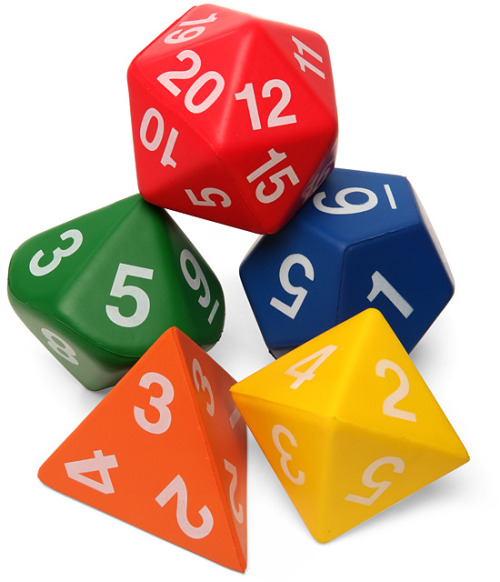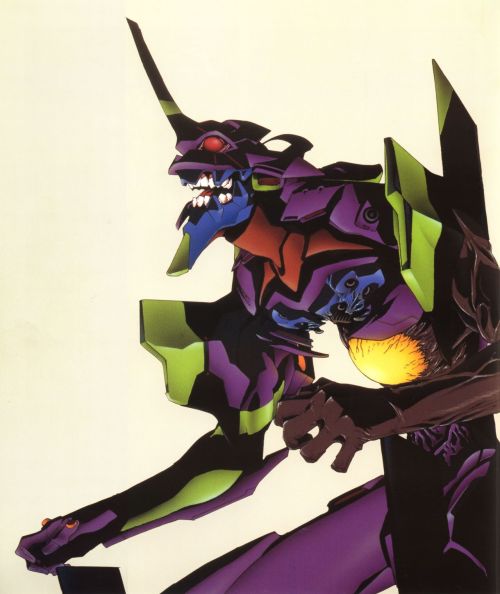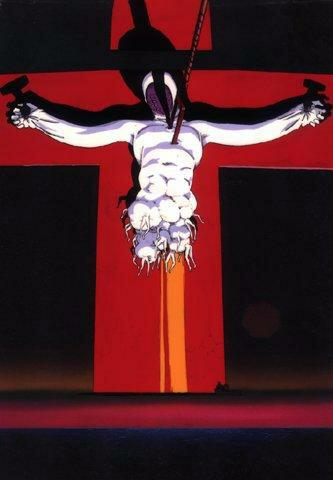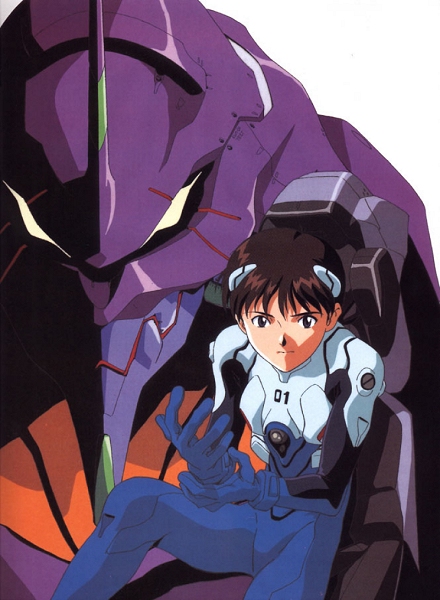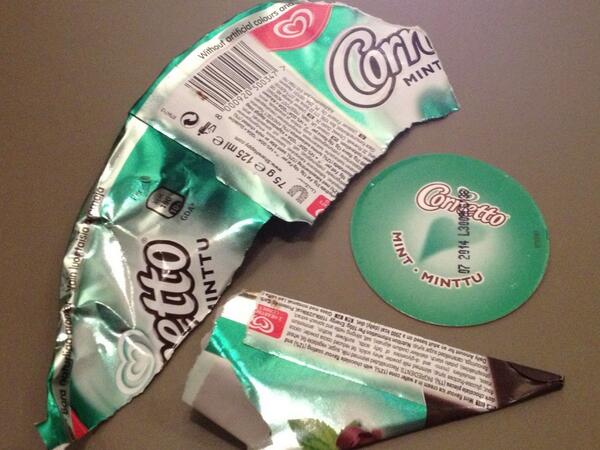Harry Potter
often gets called "magical". For one thing, it's a series
about magic, but the word often gets applied to the world and the
story and the characters, too. Sometimes it even gets applied to the
writing.
But the truly magical thing about Harry Potter is that it's universal. Everyone loves it. Male, female, young, old - everyone. People who have never read a book have read those books. People who have never watched a film have watched those films. The sheer number of people reached by that franchise is unprecedented. It's magical.
And, because every single one of those people gave Warner Bros. money, both they and their rivals have been trying to replicate that magic ever since.
The list of potential The Next Harry Potters is quite long and fairly depressing. Narnia, Dark Materials, Eragon, Lemony Snicket, Percy Jackson, Spiderwick Chronicles and many others all tried, and failed, to recapture the universal appeal of Potter. And that's just the ones based on books. Some of them were good, some of them were very very bad, but none of them managed anywhere near the numbers that their producers aimed for, let alone hoped for. The closest anyone's come at this point are The Hunger Games, which mostly appeals to girls, and Twilight, which mostly appeals to morons, so neither of them have the all-encompassing audience scope we're talking about.
The studios are getting so desperate now, and are so rapidly running out of books, that they're actually making a pornographic Twilight fanfic movie. The situation is dire.
 Following the similar
fates this year of Beautiful Creatures, Mortal
Instruments, and the second Percy Jackson, Warner Bros.
(who didn't make any of those, but were certainly watching) has come
to the conclusion that no-one will ever be able to recreate the
magic. So, in the absence of The Next Harry Potter, they're bringing back The Old Harry Potter.
Following the similar
fates this year of Beautiful Creatures, Mortal
Instruments, and the second Percy Jackson, Warner Bros.
(who didn't make any of those, but were certainly watching) has come
to the conclusion that no-one will ever be able to recreate the
magic. So, in the absence of The Next Harry Potter, they're bringing back The Old Harry Potter.
Cynical as that intro is, I'm actually quite excited about this. In fact, shockingly, I'm more excited about this than I was about Star Wars Episode VII. More than I still am about Episode VII.
To clarify: I am an absolute squealing Star Wars fanboy, where I'm only a casual fan of Harry Potter. I think Potter is pretty good, but I adore anything Star Wars - so I'm a bit confused to find myself more interested in returning to the wizards than the Jedi.
What I think matters here is that, in both cases, it's the world that draws us in. The stories are good (mostly) and the characters are fun (mostly) but it's the worlds created around those things that really take hold of our imaginations.
The reason I prefer Star Wars is probably because that world is so much bigger and better-realised than Harry's - a whole exotic galaxy versus one castle in Scotland, a couple of houses and a government building. But, conversely, that may also be the reason I'd rather see more of Harry Potter.
The new film - Fantastic Beasts and Where to Find Them - is based on a small book that J.K. Rowling wrote for Comic Relief in 2001. The book is supposedly one of Harry's textbooks from school, with descriptions of the magical creatures found in Rowling's world and notes from Harry and Ron in the margins.
If that sounds like a terrible idea for a film, it's because it is. But from this starting point they seem to be extrapolating out a story about Newt Scamander, the fictional author of the book. I say "they" but I mean "she", because the screenplay's being handled by Rowling herself.
Now, that's pretty interesting. It makes my Star Wars comparison more apt, for one thing, because Harry Potter seems creator-controlled to an extent that only George Lucas has really managed before. Secondly, it's interesting because this is J.K.'s first movie script - she helped with the others but they were mostly penned by Steve Kloves - and I really want to see what she can do with it.
As the series went on, the books began to work better as films anyway - whether unconsciously or not, I think she wrote them with the film adaptation in mind. Deathly Hallows is my least favourite of the books by a huge margin, but was turned into among the best of the films. I'm quite excited to see how that will translate when she writes directly for the screen.
What excites me far more, though, is that we're finally getting out of that school. Hogwarts was great, don't get me wrong, and she did brilliant things with it (the Inquisition vs. Dumbledore's Army plot from Phoenix is probably my favourite thing in the whole series) but it severely limited the series' scope and the kind of stories it could tell.
One of the great many things that upset me about the final book is that we did, in fact, get out of the school, and the end of Half-Blood Prince seemed to hint at this huge exploratory quest across the wizarding world. I was so up for that! But then Hallows had maybe two new locations (both just houses) and otherwise they just revisited places we already knew or sat there in that bloody tent. It felt like such a waste.
Fantastic Beasts, on the other hand, will be set not just outside of Hogwarts, but outside of Britain. It opens in 1920's New York, apparently, which is already blowing this world wide open - other than one quick reference to Salem in Goblet of Fire, I'm not sure America's even been mentioned before.
The animals in the book version of Fantastic Beasts are found all over the globe, so if this is a film about Newt Scamander writing that book (which seems pretty likely) then it could almost be a globe-trotting Indiana Jones type story. Maybe that's too much to hope for, but it's certainly going to show us parts of this fictional world that we've never seen or heard about.
That's what's got me excited for more Harry Potter. Ever since we heard about Charlie Weasley (who works abroad with dragons) I've wanted to explore Rowling's world and learn more about it. And it looks like I may finally get that - Fantastic Beasts will be showing us far more of this world than the original stories, and that's fantastic.
The reason I'm less positive about returning to Star Wars is that, essentially, Episode VII seems to be doing the opposite.
The best thing about Star Wars, like Potter, is its world - its universe, if you prefer. A galaxy of magic-wielding samurai, space-pirates and innumerable planets each with their own crazy-looking aliens and cultures. Even when the story of Star Wars is not so good, the world it creates is never less than amazing.
Purely due to the size and strength of this world, Star Wars has almost limitless storytelling potential. You can pretty much tell any story you want, around the central ideas of interstellar conflict and the Force. Some of the best tales to come out of that world are the ones that have nothing to do with the main story of the films. The Knights of the Old Republic games, for instance, have fantastic stories, and are set thousands of years before any of the films even happen. The best episodes of The Clone Wars are the ones that deal with random squads of soldiers, or mercenaries, rather than the central characters or stories.
Episode VII had the potential to be about anything - they could have taken this story wherever they wanted. It could have been hundreds of years after Return of the Jedi, or on the other side of the galaxy, or going on at the same time but dealing with totally different characters and events. They had an entire universe to explore!
But the more we learn about Star Wars Episode VII, the less likely it seems that this is what they're doing. Mark Hamill, Carrie Fisher and potentially even Harrison Ford are returning as the original cast, which ties us to a location and period barely removed from the original films. There's talk of continuing the story of the Skywalkers, which conclusively ended with Jedi and, if you really wanted more of it, got extended in various other media anyway. And finally, worst of all, they just announced a Yoda origin movie.

They've been talking about making standalone films in the Star Wars universe ever since they announced Episode VII. That sounded great, since "standalone" seems to imply independent stories like those best episodes of Clone Wars. For a few days it looked like they might make a Jedi-based Seven Samurai homage which, apart from being directed by my nemesis Zack Snyder, was exactly the kind of thing I was hoping for!
It looks instead like "standalone" meant nothing of the sort. They're doing Yoda's origin, and it seems almost inevitable that Han Solo and (groan) Boba Fett will be next.
This, and the fact they're sticking with the Skywalkers, means that they're limiting the scope of new Star Wars movies to the stuff we've already seen. I fully expect Episode VII to have a sequence on Tatooine - a crummy, backwater desert planet that isn't important in any way, except that we've been there before. They have a huge universe to play with, but they're hiding in the same tiny corner of it that we've already explored.
It's the equivalent of making a ninth Harry Potter film about Albus Severus Potter (snigger) at school with Scorpius Malfoy, while also making an accompanying side-movie to explain the (presumably pretty unpleasant) origin of Hagrid the gamekeeper. It's obvious and uninspired and it doesn't really excite me at all.
Instead, J.K. Rowling and Warner Bros. are finally making their universe larger, while Star Wars seem to be making theirs smaller. I want to see more of these worlds - I want them to surprise me and show me things I've never seen. I still believe that Episode VII could do that - it is Star Wars, after all - but Amazing Beasts is already doing it just with its premise.
And that's the whole point, isn't it. If the ideas behind your film are unique and interesting and capture the minds of enough people, then you could be on to The Next Harry Potter. It might even be magical.
But the truly magical thing about Harry Potter is that it's universal. Everyone loves it. Male, female, young, old - everyone. People who have never read a book have read those books. People who have never watched a film have watched those films. The sheer number of people reached by that franchise is unprecedented. It's magical.
And, because every single one of those people gave Warner Bros. money, both they and their rivals have been trying to replicate that magic ever since.
The list of potential The Next Harry Potters is quite long and fairly depressing. Narnia, Dark Materials, Eragon, Lemony Snicket, Percy Jackson, Spiderwick Chronicles and many others all tried, and failed, to recapture the universal appeal of Potter. And that's just the ones based on books. Some of them were good, some of them were very very bad, but none of them managed anywhere near the numbers that their producers aimed for, let alone hoped for. The closest anyone's come at this point are The Hunger Games, which mostly appeals to girls, and Twilight, which mostly appeals to morons, so neither of them have the all-encompassing audience scope we're talking about.
The studios are getting so desperate now, and are so rapidly running out of books, that they're actually making a pornographic Twilight fanfic movie. The situation is dire.
 Following the similar
fates this year of Beautiful Creatures, Mortal
Instruments, and the second Percy Jackson, Warner Bros.
(who didn't make any of those, but were certainly watching) has come
to the conclusion that no-one will ever be able to recreate the
magic. So, in the absence of The Next Harry Potter, they're bringing back The Old Harry Potter.
Following the similar
fates this year of Beautiful Creatures, Mortal
Instruments, and the second Percy Jackson, Warner Bros.
(who didn't make any of those, but were certainly watching) has come
to the conclusion that no-one will ever be able to recreate the
magic. So, in the absence of The Next Harry Potter, they're bringing back The Old Harry Potter.Cynical as that intro is, I'm actually quite excited about this. In fact, shockingly, I'm more excited about this than I was about Star Wars Episode VII. More than I still am about Episode VII.
To clarify: I am an absolute squealing Star Wars fanboy, where I'm only a casual fan of Harry Potter. I think Potter is pretty good, but I adore anything Star Wars - so I'm a bit confused to find myself more interested in returning to the wizards than the Jedi.
What I think matters here is that, in both cases, it's the world that draws us in. The stories are good (mostly) and the characters are fun (mostly) but it's the worlds created around those things that really take hold of our imaginations.
The reason I prefer Star Wars is probably because that world is so much bigger and better-realised than Harry's - a whole exotic galaxy versus one castle in Scotland, a couple of houses and a government building. But, conversely, that may also be the reason I'd rather see more of Harry Potter.
The new film - Fantastic Beasts and Where to Find Them - is based on a small book that J.K. Rowling wrote for Comic Relief in 2001. The book is supposedly one of Harry's textbooks from school, with descriptions of the magical creatures found in Rowling's world and notes from Harry and Ron in the margins.
If that sounds like a terrible idea for a film, it's because it is. But from this starting point they seem to be extrapolating out a story about Newt Scamander, the fictional author of the book. I say "they" but I mean "she", because the screenplay's being handled by Rowling herself.
Now, that's pretty interesting. It makes my Star Wars comparison more apt, for one thing, because Harry Potter seems creator-controlled to an extent that only George Lucas has really managed before. Secondly, it's interesting because this is J.K.'s first movie script - she helped with the others but they were mostly penned by Steve Kloves - and I really want to see what she can do with it.
As the series went on, the books began to work better as films anyway - whether unconsciously or not, I think she wrote them with the film adaptation in mind. Deathly Hallows is my least favourite of the books by a huge margin, but was turned into among the best of the films. I'm quite excited to see how that will translate when she writes directly for the screen.
What excites me far more, though, is that we're finally getting out of that school. Hogwarts was great, don't get me wrong, and she did brilliant things with it (the Inquisition vs. Dumbledore's Army plot from Phoenix is probably my favourite thing in the whole series) but it severely limited the series' scope and the kind of stories it could tell.
One of the great many things that upset me about the final book is that we did, in fact, get out of the school, and the end of Half-Blood Prince seemed to hint at this huge exploratory quest across the wizarding world. I was so up for that! But then Hallows had maybe two new locations (both just houses) and otherwise they just revisited places we already knew or sat there in that bloody tent. It felt like such a waste.
Fantastic Beasts, on the other hand, will be set not just outside of Hogwarts, but outside of Britain. It opens in 1920's New York, apparently, which is already blowing this world wide open - other than one quick reference to Salem in Goblet of Fire, I'm not sure America's even been mentioned before.
The animals in the book version of Fantastic Beasts are found all over the globe, so if this is a film about Newt Scamander writing that book (which seems pretty likely) then it could almost be a globe-trotting Indiana Jones type story. Maybe that's too much to hope for, but it's certainly going to show us parts of this fictional world that we've never seen or heard about.
That's what's got me excited for more Harry Potter. Ever since we heard about Charlie Weasley (who works abroad with dragons) I've wanted to explore Rowling's world and learn more about it. And it looks like I may finally get that - Fantastic Beasts will be showing us far more of this world than the original stories, and that's fantastic.
The reason I'm less positive about returning to Star Wars is that, essentially, Episode VII seems to be doing the opposite.
The best thing about Star Wars, like Potter, is its world - its universe, if you prefer. A galaxy of magic-wielding samurai, space-pirates and innumerable planets each with their own crazy-looking aliens and cultures. Even when the story of Star Wars is not so good, the world it creates is never less than amazing.
Purely due to the size and strength of this world, Star Wars has almost limitless storytelling potential. You can pretty much tell any story you want, around the central ideas of interstellar conflict and the Force. Some of the best tales to come out of that world are the ones that have nothing to do with the main story of the films. The Knights of the Old Republic games, for instance, have fantastic stories, and are set thousands of years before any of the films even happen. The best episodes of The Clone Wars are the ones that deal with random squads of soldiers, or mercenaries, rather than the central characters or stories.
Episode VII had the potential to be about anything - they could have taken this story wherever they wanted. It could have been hundreds of years after Return of the Jedi, or on the other side of the galaxy, or going on at the same time but dealing with totally different characters and events. They had an entire universe to explore!
But the more we learn about Star Wars Episode VII, the less likely it seems that this is what they're doing. Mark Hamill, Carrie Fisher and potentially even Harrison Ford are returning as the original cast, which ties us to a location and period barely removed from the original films. There's talk of continuing the story of the Skywalkers, which conclusively ended with Jedi and, if you really wanted more of it, got extended in various other media anyway. And finally, worst of all, they just announced a Yoda origin movie.

They've been talking about making standalone films in the Star Wars universe ever since they announced Episode VII. That sounded great, since "standalone" seems to imply independent stories like those best episodes of Clone Wars. For a few days it looked like they might make a Jedi-based Seven Samurai homage which, apart from being directed by my nemesis Zack Snyder, was exactly the kind of thing I was hoping for!
It looks instead like "standalone" meant nothing of the sort. They're doing Yoda's origin, and it seems almost inevitable that Han Solo and (groan) Boba Fett will be next.
This, and the fact they're sticking with the Skywalkers, means that they're limiting the scope of new Star Wars movies to the stuff we've already seen. I fully expect Episode VII to have a sequence on Tatooine - a crummy, backwater desert planet that isn't important in any way, except that we've been there before. They have a huge universe to play with, but they're hiding in the same tiny corner of it that we've already explored.
It's the equivalent of making a ninth Harry Potter film about Albus Severus Potter (snigger) at school with Scorpius Malfoy, while also making an accompanying side-movie to explain the (presumably pretty unpleasant) origin of Hagrid the gamekeeper. It's obvious and uninspired and it doesn't really excite me at all.
Instead, J.K. Rowling and Warner Bros. are finally making their universe larger, while Star Wars seem to be making theirs smaller. I want to see more of these worlds - I want them to surprise me and show me things I've never seen. I still believe that Episode VII could do that - it is Star Wars, after all - but Amazing Beasts is already doing it just with its premise.
And that's the whole point, isn't it. If the ideas behind your film are unique and interesting and capture the minds of enough people, then you could be on to The Next Harry Potter. It might even be magical.











